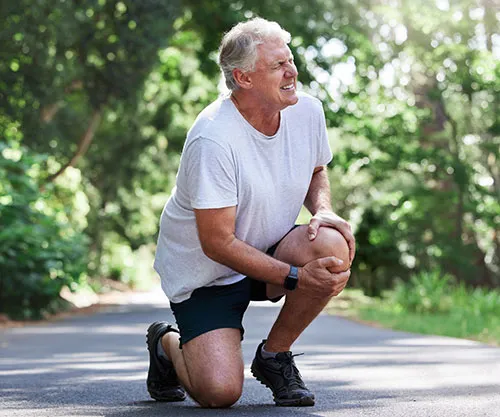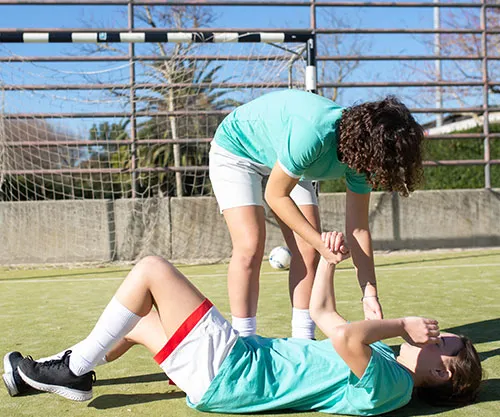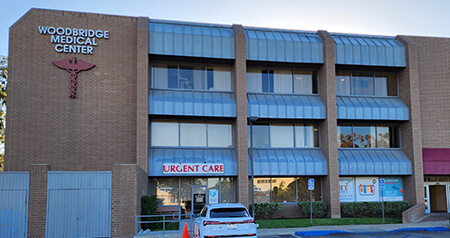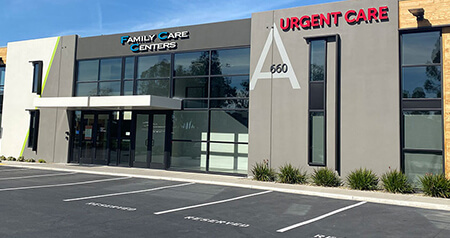

Family Care Centers is now MemorialCare Medical Group. Call us 24/7 at (877) 696-3622 or visit memorialcare.org/providers for more info.

Injuries are an unavoidable part of exercise and sports. From common strains to broken bones, injuries affect performance and well-being. They can happen suddenly during gameplay or develop over time due to overuse. Quick and appropriate treatment is vital for safe and speedy recovery.
At FCCMG, we use a team approach to treat sports injuries, with connections to imaging centers, sports medicine physicians, physical therapists, and orthopedic surgeons. Our aim is to relieve pain, aid recovery, restore functionality, and prevent future injuries. We empower athletes with evidence-based practices, modern tech, and personalized care plans.
Sports injuries affect athletes of all levels, from amateurs to pros, varying in severity and affected body parts. It's important to understand these injuries, and their causes, symptoms, and treatments.
Injuries can happen in various body parts, depending on the sport, activity level, and individual factors:

Seek medical help if pain or swelling persists despite RICE, you’re unable to bear weight, there’s any visible deformity, or for ANY head injuries — especially involving loss of consciousness, confusion, or persistent symptoms.
Take Control of Your Recovery with Family Care Centers Medical Group
Overcome sports injuries and return stronger with our expert team.
FCCMG Urgent Care can treat a wide range of sports injuries, including muscle strains and sprains, fractures, dislocations, tendon and ligament injuries, and overuse injuries like tendonitis and stress fractures. Our healthcare providers offer personalized care to address various injuries affecting different body parts.
Yes, FCCMG Urgent Care can diagnose fractures and sprains on-site.
If needed, yes, we have X-ray facilities at our Urgent Care Centers.
You can be seen promptly at FCCMG Urgent Care without the need for an appointment. We accept walk-ins, and you can also reserve your spot online to minimize wait times.
Yes, if your injury requires further treatment such as physical therapy or specialist care, FCCMG Urgent Care will provide a referral to a trusted provider or specialist for continued care and recovery.
Yes, FCCMG Urgent Care can provide braces, splints, or wraps to support and protect your injury during the healing process. Our healthcare providers will recommend the best options for your injury type and severity.
If your injury involves severe pain, visible deformity, or you are unable to bear weight or move the affected area, you may need to visit the emergency room. For most sports injuries, FCCMG Urgent Care is the right place to seek immediate care, especially if the injury is moderate and doesn’t involve life-threatening symptoms.
Yes, FCCMG Urgent Care can provide a medical clearance or return-to-play note for athletes, ensuring that they are fit to resume sports activities after an injury.
Yes, both student-athletes and weekend warriors are eligible for treatment at FCCMG Urgent Care. We offer comprehensive care for individuals of all activity levels who experience sports-related injuries.
Most insurance plans cover visits for sports-related injuries at FCCMG Urgent Care. We recommend confirming with your insurance provider to ensure coverage details before your visit.

We're Open Every Day!
Mon - Fri:
8AM - 8PM
Weekends & Holidays: 8AM - 5PM

We're Open Every Day!
Mon - Fri:
8AM - 8PM
Weekends & Holidays: 8AM - 5PM